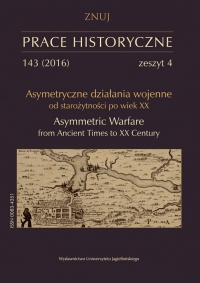Drobna szlachta w Galicji – problem tożsamości społecznej
Minor gentry in Galicia – the problem of social identity
Author(s): Krzysztof ŚlusarekSubject(s): Customs / Folklore, Social history, 19th Century, Identity of Collectives
Published by: Wydawnictwo Uniwersytetu Jagiellońskiego
Keywords: Galicia; minor gentry; peasants; social identity;
Summary/Abstract: Research into the social relations in villages where there were noble villages proved that in the 19th century minor gentry was an in-between stratum, which no longer belonged to landed gentry (since they did not own enough property), but at the same time could not be classified as peasants (since they possessed coats of arms). This situation caused numerous new conflicts. For example, in many Galician noble villages there were clashes between the minor gentry and the landed gentry. Landed gentry regarded minor gentry as a quarrelsome and insubordinate element. Many land owners would have gladly treated their poorer fellows as serfs; they would have also been willing to impose on them the obligations of serfdom. Minor gentry, mindful of the danger they faced, wished to distinguish themselves from peasants in every way available. This was a site of very serious conflicts. Given the smallness of their “fortunes,” minor gentry did not differ from peasantry in terms of material wealth. However, they tried to distinguish themselves through their customs, their dress, managing style and, above all, the emphasis on the tradition of possessing coats of arms.
Journal: Prace Historyczne
- Issue Year: 144/2017
- Issue No: 2
- Page Range: 385-400
- Page Count: 16
- Language: Polish

